
9 minute read
Board members
Bernie Durkin – President, Western Australia
Bernie is the Executive Manager for the Community Engagement Division of the Western Australia Police. Part of this role encompasses the position of WA State Director for NHW. In 1988 Bernie joined WA Police as a sworn Police Officer then switching to a Public Servant in 2008. In his current role Bernie manages a team of crime prevention community engagement staff and is extensively involved with NHW at both a State and National level. Bernie is currently the President of Neighbourhood Watch Australasia.
Clare McGrath– Vice President, ACT
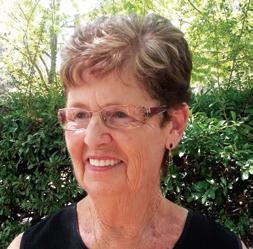
Clare is currently the Vice-President and Board Member of the ACT Neighbourhood Watch Association. Clare has been an active member of NHW since 1985, primarily in the Ainslie Suburb of Canberra where she has lived since 1962 after moving from Melbourne.
Clare is employed with the Australian Electoral Commission and this is a busy role. Clare is a self-professed sports lover and a one eyed Hawthorn supporter.
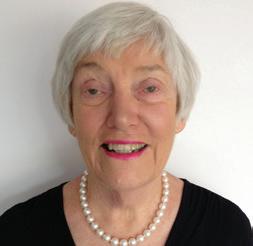
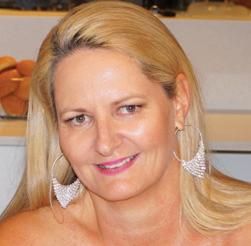
Margaret Pearson – Secretary/Treasurer
Throughout Margaret’s career she has made a significant contribution to the voluntary sector by being involved with numerous community organizations including ACT Neighbourhood Watch Association Inc. where she held a number of positions within that organisation including President.
Having lived overseas for a number of years Margaret returned, with her family, to Canberra where she continues to follow her great interest in local and international politics. Margaret is currently the secretary/treasurer of NHWA.
Ingrid Stonhill – Chief Executive Officer
Ingrid has extensive experience in local government, federal government and non government agencies, predominantly focused on community development, crime prevention and community engagement – within the voluntary, policing and government sectors.
Ingrid has been an elected local body politician, an advisor to a senior Member of Parliament, run her own Public Relations and Marketing business and spent two years as a volunteer in the Pacific Islands. Ingrid brings to NHWA an in-depth knowledge and understanding of the organisation as a founding member and administrator of the board. Ingrid was the inaugural National Manager of Neighbourhood Support New Zealand prior to immigrating to Australia.
Brooke Jones – AFP

Brooke Jones is the Team Leader for the Prevention (Cyber and Child Safety) Team in the Australian Federal Police (AFP). Her team is responsible for the development and implementation of cyber safety education and awareness programs, including ThinkUKnow. Brooke has held roles in ACT Policing and the AFP for nearly five years. Prior to working in law enforcement, Brooke worked in a range of private and government roles specialising in Project Management and Marketing Communication. Brooke holds a Bachelor of Arts and a Graduate Diploma in Marketing Communication.
Brad Shepherd – New South Wales
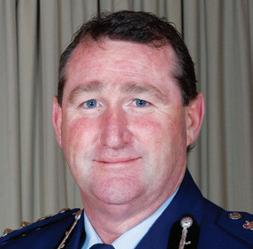
Chief Superintendent Brad Shepherd joined NSW Police Force in 1980. He currently serves as the Commander of Operational Programs and is the Corporate Sponsor for Crime Prevention and Chair of the Australia New Zealand Police Advisory Agency Crime Prevention Senior Officers Group. A 33 year career in law enforcement has spanned several roles including General Duties, Radio Technical, Covert Technical Surveillance, Staff Officer, Counter Terrorism, Operational Communications and Local Area Commander. Brad holds a Bachelor of Business (BBus) and a Master of Business Management (MBA).
David Cowan – Victoria
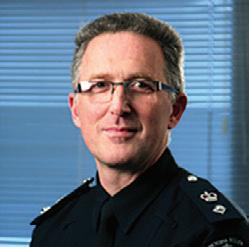
Superintendent Dave Cowan has been with Victoria Police for 26 years and currently manages the Community Safety Division within the Corporate Strategy and Operational Improvement Department. The Division comprises of the Drug and Alcohol Strategy Unit, the Victims Advisory Unit, the Safer Communities Unit, Diversion Alignment Project and the newly formed Policing Innovation and Research Unit.
Dave has lead a range of organisational-wide reviews including counter terrorism; persons in police custody; family violence; and volume crime scene services in Victoria Police. Dave recently lead the development of the Victoria Police Corporate Plan 2016- 2018 which shapes the future direction of the organisation aligned to the Blue Paper.
Dave has a Graduate Diploma in Executive Leadership and in 2013 was awarded the Australian Institute of Police Management, Australasian Policing Scholarship where he undertook studies at the John F Kennedy Harvard School of Government.
Pat Leary – Tasmania
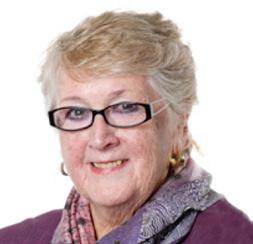
Patricia Leary is currently the State Secretary Neighbourhood Watch Tasmania Inc. and immediate past president of NHWA. Pat has professed to recently retiring, and indeed has stepped down from being the Deputy President Fair Work Commission (and its predecessors) for some 28 years; a Member/President Tasmanian Industrial Commission some 12 years; a Member/President Defence Force Remuneration Tribunal over a 20-year period.
Pat also served as the Chair of the Northern Territory Police Arbitral Tribunal (since 2002); and was Chair of the Tasmanian Symphony Orchestra (since 2006). Pat still serves as Chair of the Tasmanian Police Review Board and Member (since 2004); Chair Red Cross Tasmanian Bushfire Appeal Fund Distribution Committee; and Chair of the Centenary of ANZAC Steering Committee (Tasmania).
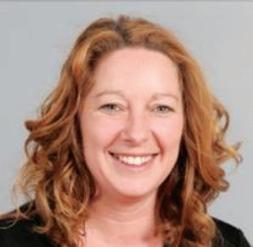
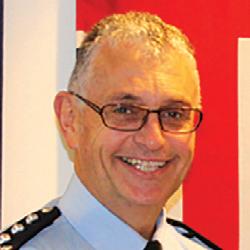
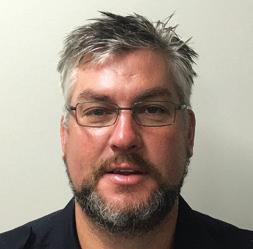
Sharleen Stirling – New Zealand
Sharleen Stirling is currently the chair of Neighbourhood Support New Zealand and believes it is a fabulous opportunity for their organisation to be able to connect with NHWA. She also looks forward to developing the relationship and the sharing of knowledge.
Sharleen has a background in education and working with young people and their families, helping them to grow and develop strengths that will support them through the challenges of life’s journey.
Sharleen has had the privilege of founding Project Adapt, a service that supports families who have a young person in their care with a disability. She co-owns a coaching and facilitation business supporting individuals, groups and businesses to evaluate their strategic plans and intentionally start making them come to life.
Sharleen values being actively involved in the community in which she lives.
Les Bulluss – Queensland
Les joined the Queensland Police Service (QPS) in June 2000 after 13 years with the New South Wales Police. He has performed General Duties, Licensing, Water Police and Officer in Charge roles in New South Wales and Queensland.
In 2008 Les was promoted to Senior Sergeant, Officer in Charge, Thursday Island; the only police division in Australia with an international border. In 2010 Les was awarded a Churchill Memorial Trust Fellowship to travel to Canada and USA to research ‘Culturally Appropriate Indigenous Community Policing Models’. Following the fellowship, Les made several recommendations to the QPS which were adopted into remote community policing models.
In 2011 Les was promoted to Inspector and in 2013 was appointed to his current role as Manager, Community Programs and Engagement, Community Contact Command. Les’ portfolio includes the Crime Prevention, Cultural Support, Crime Stoppers, Victims Assist, Queensland Police Pipes and Drums, and Queensland Police Museum Units.
Les has a Graduate Diploma in Management from Central Queensland University and Graduate Certificate in Applied Management (Policing and Emergency Services) from Australian Institute of Police Management
Nathan Finn – Northern Territory
Senior Sergeant Nathan Finn has been with Northern Territory Police for 13 years and has extensive experience in policing in remote communities.
He is currently the Officer in Charge of the Special Operations Command which comprises the Metropolitan Social Order and Engagement Unit, and the Mounted Police Unit, along with Crime Prevention, Community Engagement, Awareness and Prevention activities across the Darwin Metropolitan Command.
Nathan previously worked within the Remote Policing Command performing roles of Community Engagement, Healthy Relationships, Healthy Lifestyles, Healthy Education, and Suicide Prevention and Awareness. Nathan’s policing career has taken him from the Red Centre to the Northern Coast of Arnhem Land as the Officer in Charge of Urban and Remote Police Stations.
Nathan has a Diploma of Policing and a Graduate Certificate in Leadership and Strategic Management. He has been awarded the Australian Federal Police Service medal for work with the Australian Government Intervention into Remote Communities (Operation THEMIS) and awarded the Remote Policing Medal for Northern Territory Police.
Neighbourhood Watch members have a vital role to play as the government asks us to Find out what you can do to help keep australia safe from terrorism
Is a terrorist attack imminent in Australia? • Based on advice the Australian Government has raised the National Terrorism Public
Alert level from medium to high.
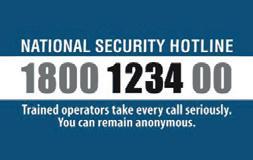
This is not based on knowledge of a specific attack plan but evidence that points to the increased likelihood of a terrorist attack in Australia.
How long will Australia be on heightened security alert? • It is likely that we will be living with increased security for the foreseeable future.
There is no need to change your daily routine. You should not change the way you live your life, but remember that terrorism is a threat here in Australia.
As Neighbourhood Watch members what can you continue to do? • Call for calm and offer reassurance particularly to socially isolated and vulnerable community members.
Continue to be the "eyes" and "ears" of your community. If something seems out of the ordinary, then it probably is.
Report suspicious behaviours – know who to call.
Have you ever wanted to meet new people and feel more connected?
Here are some tips to help you make new friends.
1.
2.
Accept all invitations, even if it doesn’t seem like the kind of event you’d enjoy. You never know who you’ll meet!
Appreciate that friendships are built over time. Don’t share major confidences too soon with a new friend. Pushing for intimacy may drive people away.
3.
Accept that we’re all different. Demanding that others share your beliefs and behaviours could limit the variety of friendships you make.
4.
Show that you are a trustworthy and positive friend. Use optimistic and encouraging conversation and don’t gossip about others.
5.
Take any opportunity to socialise. Invite people to attend activities you have organised instead of always waiting to be asked.
6.
Use your existing network of family and friends to meet new people. Ask if you would be welcome to attend one of their social events.
7.
8.
Focus your attention on other people and outside interests. Worrying about yourself and how you are feeling prevents you from connecting with others.
Watch others who seem to make friends easily. Adopt some of the same techniques they use. Confidence comes with practice, so give yourself a chance to rehearse.
9.
Show you’re interested in others. Ask questions about their life and interests. It will keep the conversation flowing.
10. Nurture old and new friendships. Give people in your life the time and attention they deserve.










